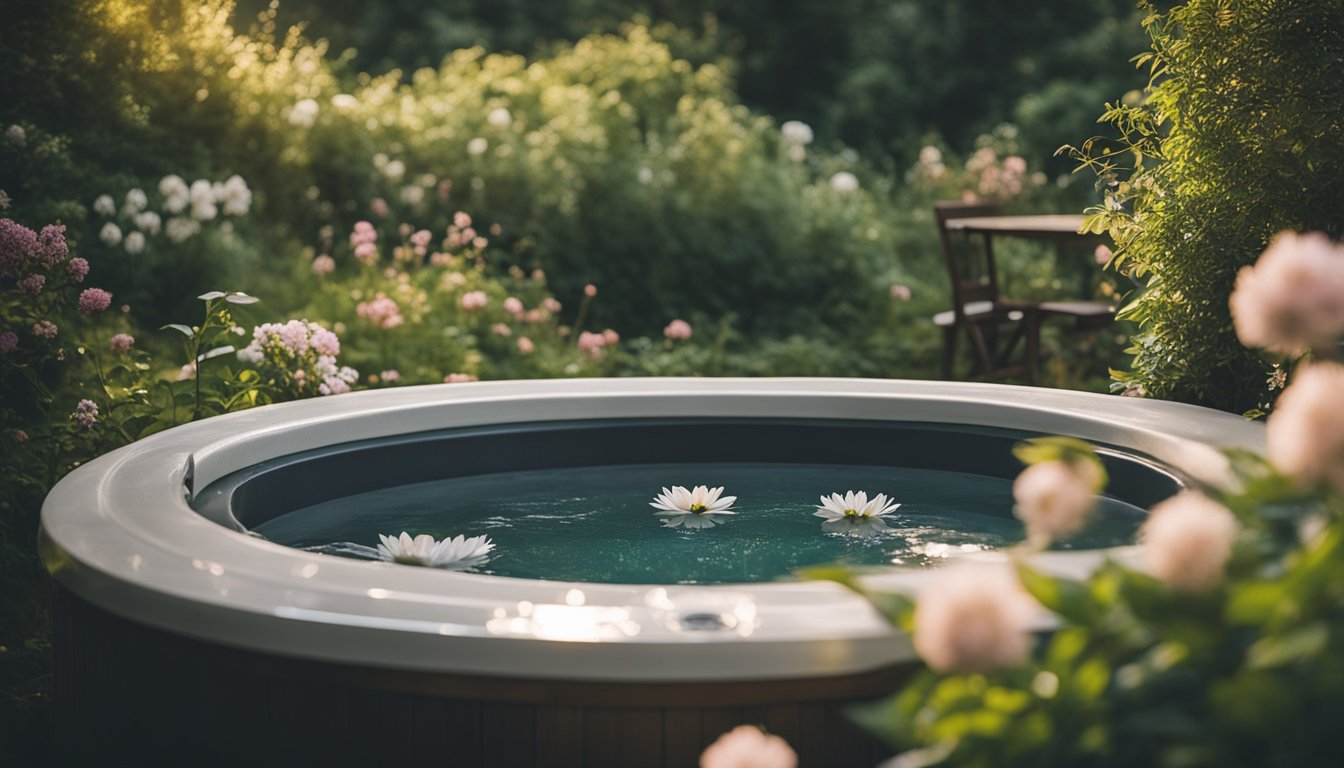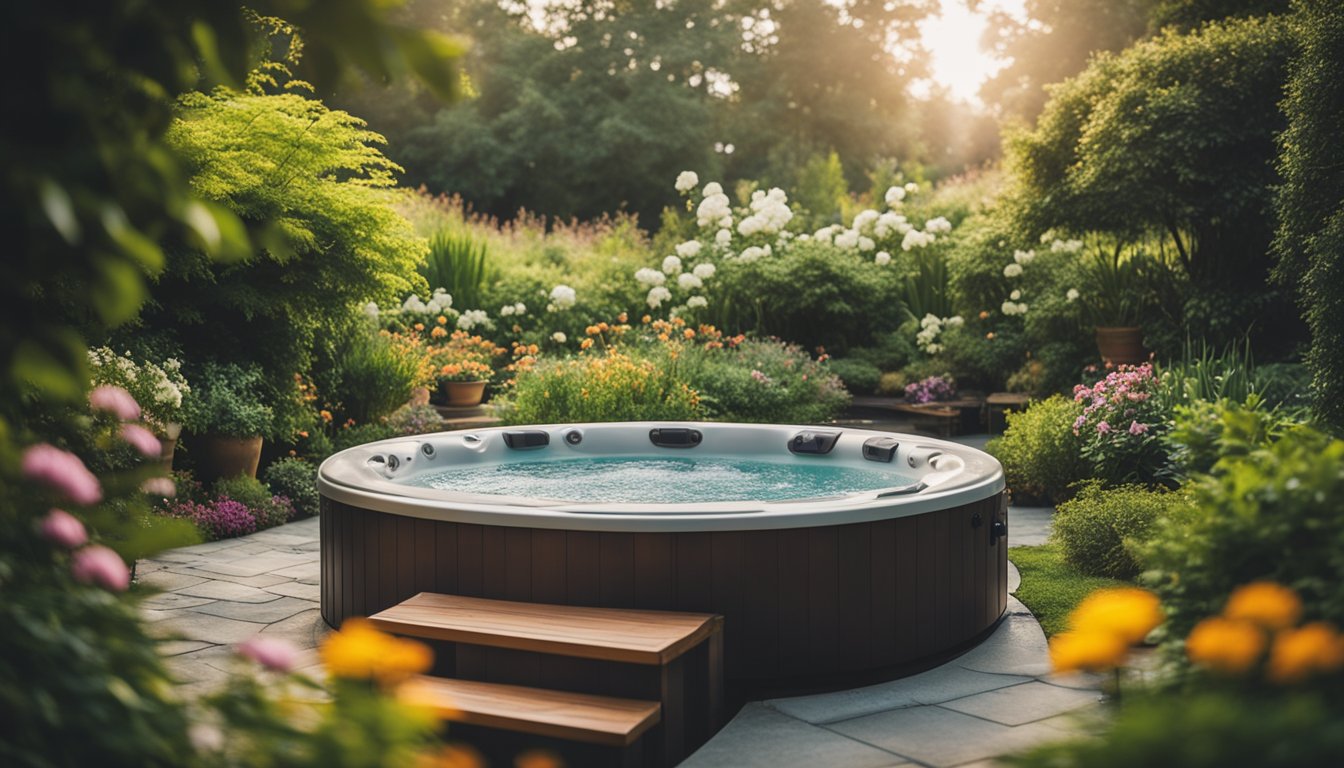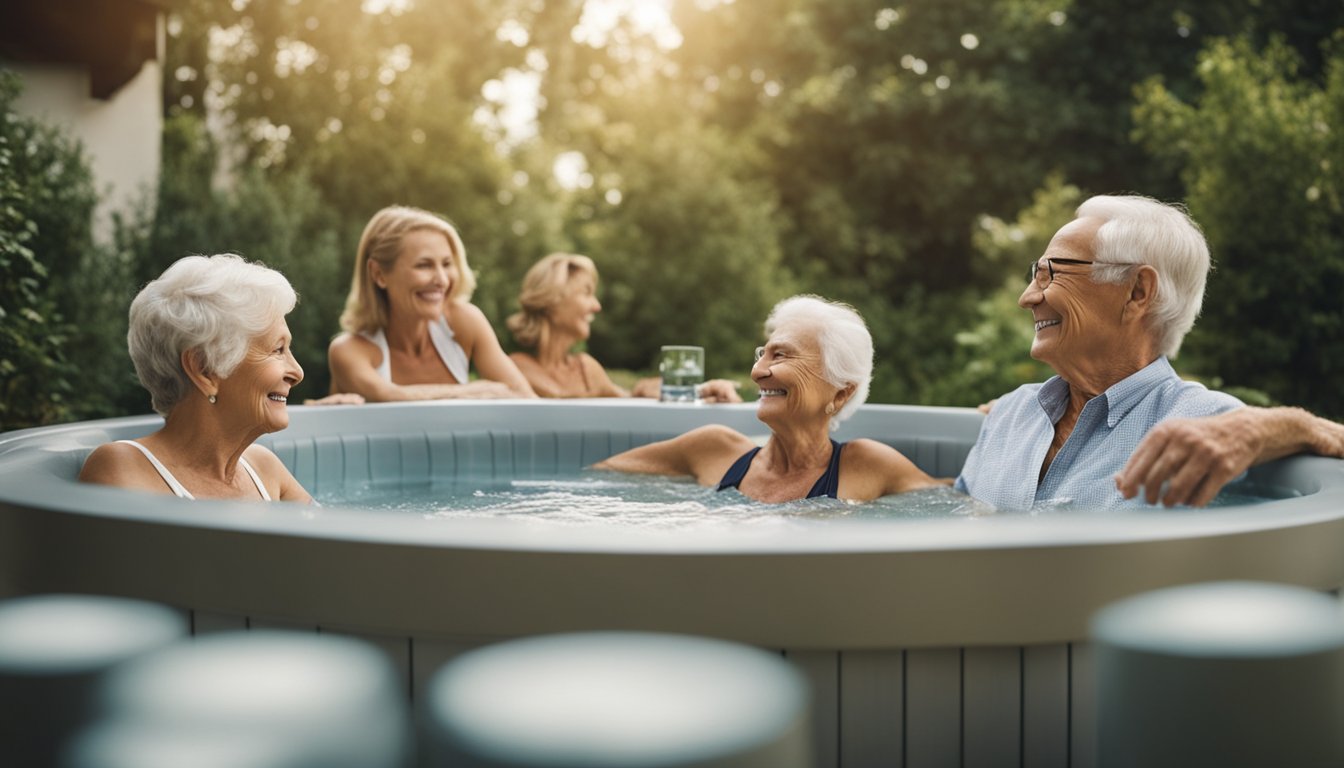Late updated: 06 Oct 2024 09:10
Written by: James Whitaker
Hot Tub Wellness Benefits For Seniors: Enhancing Quality of Life
Exploring wellness options is vital as we age, and hot tubs can offer remarkable benefits for seniors. These soothing baths not only help relieve muscle aches and joint stiffness but also enhance relaxation after a long day. For seniors, hot tubs provide a simple yet effective way to promote both physical and mental well-being.

Our bodies change with age, and maintaining flexibility becomes increasingly important. Soaking in hot tubs can aid in easing arthritis pain and reducing tension in muscles, allowing for better movement. This therapeutic practice supports a more active lifestyle, enabling us to enjoy activities we love.
Beyond physical benefits, hot tubs offer emotional relaxation. Stress is alleviated, and sleep quality is improved, fostering a sense of overall calm. Participating in regular hot tub therapy could contribute to a happier and healthier lifestyle, ultimately improving our overall quality of life.
Key Takeaways
- Hot tubs help with muscle aches and joint pain.
- They promote physical activity and flexibility.
- Emotional well-being and sleep quality can be enhanced.
Physical Health Advantages
Hot tubs offer various physical health advantages that can particularly benefit seniors. These include pain management and muscle relief, improvements in cardiovascular health, and enhanced mobility and flexibility.
Pain Management and Muscle Relief
Using hot tubs can significantly aid in relieving pain and relaxing muscles. The warmth from the water in combination with buoyancy offers a form of hydrotherapy that aids in reducing the discomfort caused by conditions such as arthritis. Warm water promotes muscle relaxation, providing much-needed pain relief for aches and pains.
Hydrotherapy also can loosen tight muscles and improve circulation. Enhanced blood flow helps transport nutrients and oxygen more effectively throughout the body, which supports the healing process.
The massaging action of the jets can alleviate stiffness, making it a valuable therapeutic benefit for seniors. This not only helps with pain relief but also contributes to an overall sense of well-being.
Improving Cardiovascular and Overall Health
The cardiovascular benefits of using a hot tub are profound. Immersion in warm water can lead to lower blood pressure as the heat causes blood vessels to dilate, promoting better circulation. This helps to reduce cardiovascular risk.
Increased circulation also leads to improved insulin sensitivity. This is crucial as better insulin regulation can aid in managing blood sugar levels, an important factor for those at risk of diabetes.
These factors tie into enhanced cardiovascular health, demonstrating how regular use can lead to substantial health improvements in seniors. Staying proactive with cardiovascular health helps in maintaining independence as we age.
Enhancement of Mobility and Flexibility
Regular use of a hot tub is beneficial for enhancing mobility and flexibility. The buoyancy reduces the weight-bearing stress on joints, making movement easier. This is especially useful for those with arthritis or joint pain.
The heat therapy can help to increase joint flexibility and reduce stiffness. It is an excellent way to prepare the body for gentle stretching exercises, leading to improved mobility.
Incorporating these sessions into a routine can lead to considerable benefits. Increased ease of movement can significantly enhance the quality of life for seniors, helping them stay active and mobile.
Mental and Emotional Well-being

Maintaining mental and emotional well-being is crucial for seniors, and hot tub therapy can play a significant role. By promoting relaxation and stress reduction, it can lead to mood improvement and better sleep quality, all while ensuring safety and prevention of skin infections and conditions.
Stress Alleviation and Mood Improvement
Hot tub therapy offers a serene environment that fosters relaxation and stress relief. The warmth and buoyancy of the water create a soothing experience that can reduce stress and help elevate mood. Aromatherapy can be integrated to enhance this effect by using essential oils known for calming properties.
Regular sessions in a hot tub may help alleviate symptoms of depression. The combination of physical relaxation and mental stress relief encourages a more positive mood.
It's important to monitor water quality and cleanliness during hot tub use. This helps to avoid skin infections, ensuring a safe and pleasant experience for seniors.
Sleep Enhancement
A consistent routine involving hot tub use can lead to improved sleep quality. The drop in body temperature post-soak can facilitate a better night's sleep, which is beneficial for those dealing with insomnia or sleep disturbances.
The relaxation benefits of hot tub therapy extend to mental well-being, quieting the mind and preparing the body for rest.
To make hot tub sessions even more effective, consider incorporating calming practices such as deep breathing or gentle stretching. These can enhance the transition into calmness and readiness for sleep, aiding in combating insomnia.
Considerations for Safe Use
While hot tubs offer numerous mental and emotional benefits, certain precautions are necessary to ensure safety. For seniors, it’s essential to avoid excessively high temperatures to reduce the risk of overheating.
We should be mindful of existing skin conditions and consult healthcare providers to prevent complications or discomfort. Regular checks on water cleanliness and chemical balances are important to minimise risks of skin infections.
When using a hot tub, it’s advisable to remain hydrated and limit soak times. This helps us maintain a balance, ensuring the experience remains both positive and beneficial for our mental and emotional well-being.
Frequently Asked Questions

Using hot tubs can offer numerous health benefits for seniors, making it essential to understand how to use them safely and effectively. It's important to consider factors such as safety, features, and health impacts for optimal results.
What are the recognised health advantages for elderly individuals who use hot tubs?
Hot tubs can alleviate back pain and loosen arthritic joints, which helps reduce arthritis-based pain. They promote muscle relaxation, increase blood flow, and can lower blood pressure. Regular use also fosters better sleep quality and reduces stress. These benefits contribute to improved overall well-being for senior users.
What features should be considered when selecting a hot tub suitable for the elderly?
When selecting a hot tub for seniors, key features to look for include non-slip surfaces and built-in handrails for enhanced safety. Adjustable jets that target specific muscle groups can be beneficial. Easy-to-use controls are essential, and a comfortable seating design is also important to accommodate physical limitations.
How can seniors safely enter and exit a hot tub?
To ensure safe entry and exit, seniors should use steps equipped with handrails. It's advisable to have assistance if needed. Non-slip surfaces on the steps and surrounding area also enhance safety. Taking it slow and careful is crucial to avoid slips or falls.
What is the recommended duration for seniors to spend in a hot tub?
Seniors are generally advised to limit their hot tub sessions to no more than 15-20 minutes at a time. It's vital to listen to one's body and avoid prolonged exposure to prevent overheating or dehydration. Shorter, more frequent sessions can provide relaxation and benefits without unnecessary risks.
In what ways can spa treatments positively impact the health of senior citizens?
Spa treatments, such as hydrotherapy, can enhance pain relief and promote relaxation. They help reduce muscle stiffness and can improve joint mobility. The soothing effects of water immersion can foster mental wellness, ease anxiety, and contribute to a more active lifestyle by decreasing physical discomfort.
What precautions should seniors take when using a hot tub?
Seniors should ensure they are properly hydrated before and after using a hot tub. It's crucial to monitor water temperature, keeping it below 40°C (104°F). Consulting a healthcare provider before regular use is advisable, especially for individuals with pre-existing health conditions. Keeping a mobile phone nearby for emergencies is also wise.
